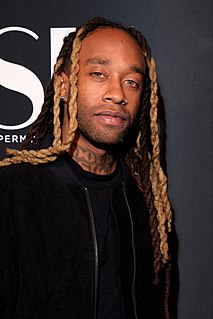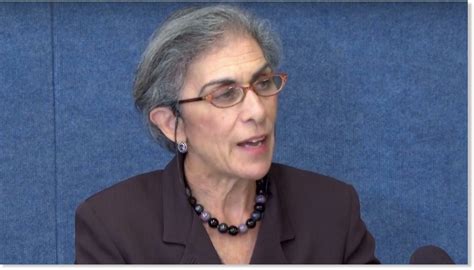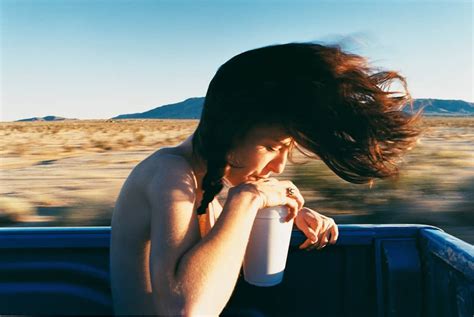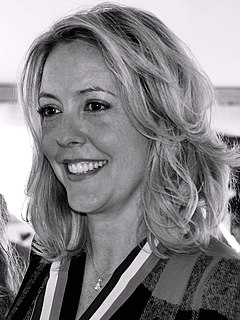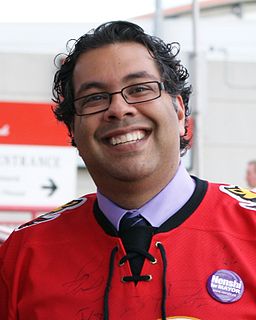A Quote by Michelle Alexander
I think it's critically important for people to understand that this system of mass incarceration governs not just those who find themselves in prison on any given day, but also all those who are in jail, on probation or parole, as well as all those who are just months away from being locked up again because they are unable to find work or housing due to their criminal record.
Related Quotes
I went back to work right away [after prison]. I was very lucky — a friend of mine created a job for me at his company. Most prisoners who come home face really significant challenges when it comes to finding work. It’s very, very hard for most people who have a criminal record to get a job. I think the system is very wasteful of taxpayers’ dollars. It’s also very wasteful of human potential. I found that most people whom I was locked up with were, you know, good people who have skills and value. Prison is a missed opportunity to nurture those things.
I work at a record label where I have archives. These things [memorabilia] occurred and are important to somebody, and they're important to me. I find the record industry largely repellent. This music, the Teen Idles, all of that stuff, is important to me. I don't have lawyers, an agent or a manager. However I find the music industry largely repellent. I just make records because that's what I love to do. So I think that era, those pieces of media, I keep in my collection.
For those of you that don't know, the reason I named my album 'Free TC' is because my lil' brother is named TC. He's locked up for something that he didn't do, and what I'm trying to do is just raise awareness around the whole mass incarceration thing going on in our country, especially with our people.
A lot of the problems we have in our criminal-justice system, you know, the problem of over-incarceration, the problem of prosecutorial abuse, the problem of just this sort of mass crop of people, of plea bargains, they all have to do with the system being overloaded. If crime was lower, many of the problems would go away.
I think that's an important lesson for young people who want to be artists: You have to find someone who believes in you and who will help you find that time where you don't have to think about a job but just making work. If I didn't have those people in my life, I wouldn't be in the position I'm in.
We would never throw up our hands and say to those white boys - well, too bad, if you had just stayed away from marijuana or not dealt dope to your friends when you were 18 you wouldn't be serving a life sentence in prison right now. You wouldn't be locked out of jobs, unable to even get work at McDonalds. No, instead we'd say, "What's wrong with us as a nation that we would condemn so many of our young men to a life of poverty, exclusion, and scorn simply because they made a few mistakes in their youth?".
What I find very attractive, what I find sexual, are people who are unapologetic for who they are and comfortable with themselves. And I think with those two things sexual energy does come out because you're not hovering or censoring yourself, you're just being who you are. And being who you are is a very attractive quality in a person.
... as recently as the mid-1970s, the most well-respected criminologists were predicting that the prison system would soon fade away. Prison did not deter crime significantly, many experts concluded. Those who had meaningful economic and social opportunities were unlikely to commit crimes regardless of the penalty, while those who went to prison were far more likely to commit crimes again in the future.
Being a figurehead for those with family members in prison is somewhat new for me. Something I've discovered since my father's incarceration is that the prison system is broken. My first-hand experiences have taught me that reform needs to happen sooner than later. I'm most interested in mentoring children with parents in prison. When a parent is sentenced to a jail term, the child is sentenced to the same time to be spent without a mother or father. No child should suffer a stigma or lack support and guidance because of the sins of a parent.
You know, even in the economic downturn in Alberta, there are restaurants in Calgary, and even in Canmore up the mountain, that cannot open for lunch because they cannot find staff. And they cannot find staff because there's nowhere for those people to live. And so safe and decent housing, market housing, subsidized housing, the whole bit, we really, really need to have our heads on straight on this, and we don't yet.
I think the biggest problem in our country is mass incarceration and the prison-industrial complex. From the Rockefeller drug laws to stand your ground to stop and frisk, all these are pointing people, especially and disproportionately black and brown people, towards the criminal-justice system. It's depleting whole generations of people.
Most people don't like to think. This is why human religions are so popular. It almost doesn't matter what the belief system is, as long as it's firm, consistent, clear in its expectation of the follower, and rigid. Given those characteristics, you can find people who believe in almost anything. It's God's way, they say. God's word. And there are those who will accept that. Gladly. Because, you see, it eliminates the need to think.



